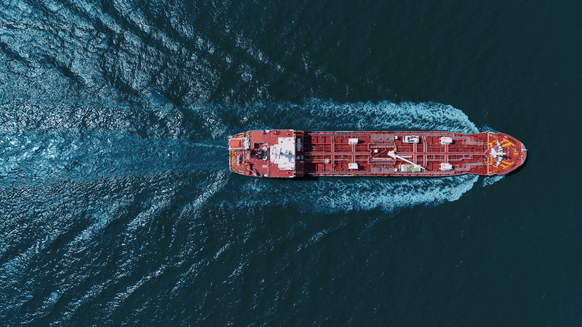The US ship certification agency American Bureau of Shipping (ABS) has approved in principle the Oil and Gas Climate Initiative (OGCI) and a consortium of shipping organizations for the use of a carbon capture system carbon on board an oil tanker.
The seven-member project consortium includes the Global Center for Maritime Decarbonization (GCMD) in Singapore, OGCI, ABS, Stena Bulk, Alfa Laval, the Netherlands Organization for Applied Scientific Research (TNO) and Deltamarin, which offers marine and offshore vessel services. industries, OGCI said in its statement.
ABS approval allows the consortium to consider moving the project to the next phase which would include engineering, procurement and construction. The project itself, which aims to demonstrate the feasibility of using carbon capture on board a ship, is one of the largest of its kind, participants say.
The global maritime industry is looking at a range of solutions, including low-carbon fuels and on-board carbon capture, to help meet the target of halving its greenhouse gas emissions by 2050 to from a baseline of 2008, recalls OGCI.
Consortium members believe the on-board carbon capture system could help accelerate the commercial deployment of on-board carbon capture technology within the next five years.
Multi-stage approach
The two-year, three-phase demonstration project is investigating on-board capture, storage and offloading of captured carbon dioxide to address operational challenges and opportunities for deploying carbon capture technology on ships, the statement said.
The consortium recalled that it began the first phase of the REMARKCABLE Project, (Realizing Maritime Carbon Capture to demonstrate the Ability to Lower Emissions) in 2022, which involved a conceptual design and a front-end engineering design study of the system of carbon capture
The second phase would include the engineering, procurement and construction of a prototype on-board carbon capture system and commissioning on land. The third phase would focus on integrating the carbon capture system with the MR tanker and conducting sea trials, the statement said.
The OGCI further noted that following a full engineering study, the carbon capture system will be built and tested prior to integration on board a Stena Bulk Medium Range (MR) vessel, for sea trials.
The GCMD plans to launch a study on liquid carbon dioxide (CO2) discharge to address potential challenges and inform the third phase of the project.
To contact the author, please email andreson.n.paul@gmail.com
Photo Credit – iStock.com/Suriyapong Thongsawang


